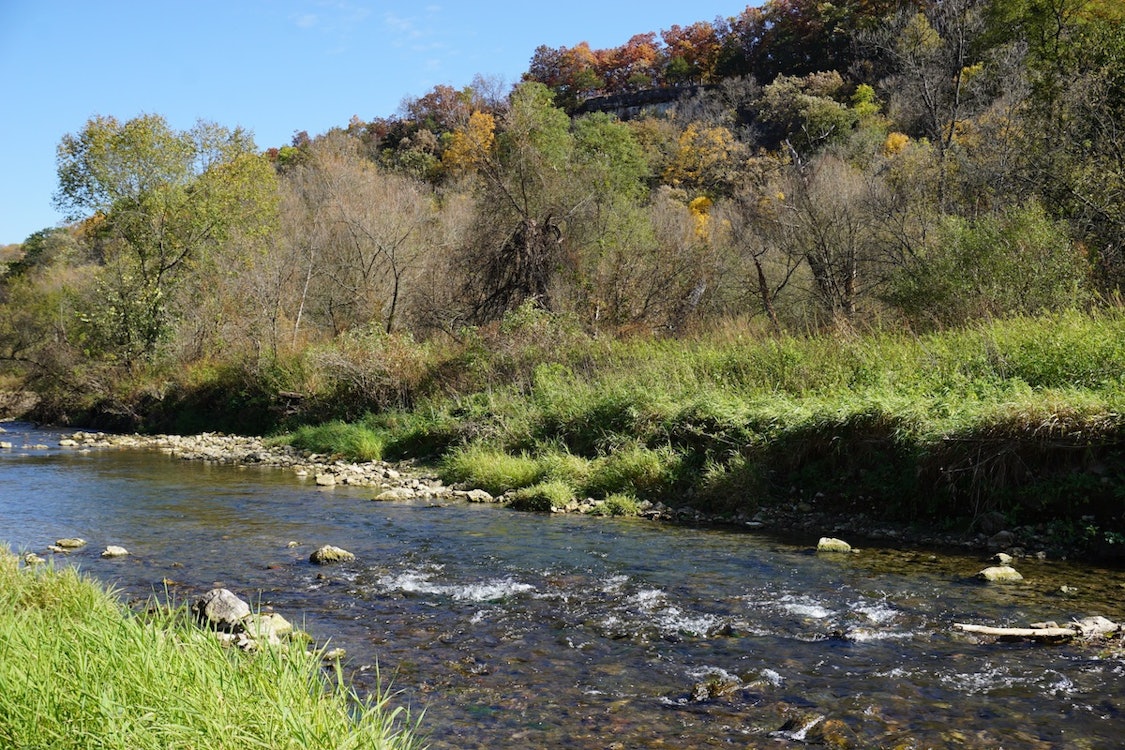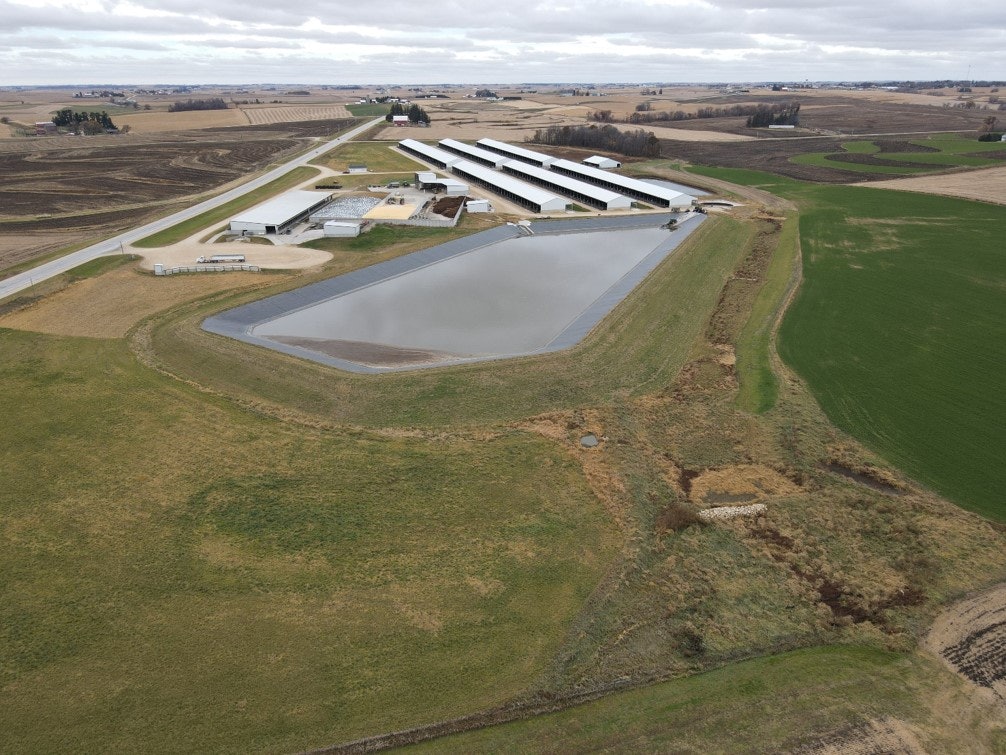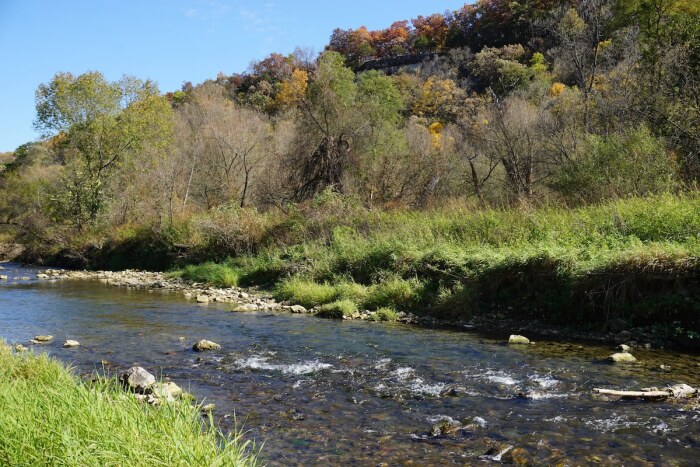Wally Taylor is the Legal Chair of the Sierra Club Iowa chapter.
A Polk County District Court ruled on April 28 that the Iowa Department of Natural Resources (DNR) improperly approved Supreme Beef’s nutrient management plan.
Supreme Beef LLC is an 11,600-head cattle feeding operation in Clayton County. It sits at the headwaters of Bloody Run Creek, one of the most treasured trout streams in Iowa and officially designated as an Outstanding Iowa Water.

Photo by Pam Mackey Taylor of Bloody Run Creek
In April 2021, the DNR approved a nutrient management plan that allowed Supreme Beef to have an earthen manure storage basin in karst terrain and to apply manure on some 45 crop fields in the Bloody Run watershed. Because DNR’s approval of the nutrient management plan was wrong in several respects, Sierra Club sought judicial review of the decision in Polk County District Court.
Sierra Club opposed Supreme Beef from its inception. The project began in 2017 as Walz Energy, with the plan to take the manure from the cattle operation and subject it to anaerobic digestion to make methane, to be used as an energy source. When the digester project was discontinued, the operation was renamed Supreme Beef and presented as an open feedlot. However, as DNR has admitted, many of the aspects of the Supreme Beef operation are more akin to a confinement operation than an open feedlot.
Because Supreme Beef didn’t fit the regulations, DNR had to try to make the regulations fit Supreme Beef.
An open feedlot is a livestock operation where the animals are in an unroofed or partially roofed area. DNR regulations say that if the animals are housed in a building that is at least 10 percent unroofed, it is an open feedlot. The Supreme Beef cattle are confined in buildings where the 10 percent portion with no roof is the feed bunk. So the animals stick their heads out of the buildings to eat, but never get outside themselves.

Photo of Supreme Beef by Jess Masour
The nutrient management plan is a document prepared by or for the livestock operator. It is supposed to correctly calculate the amount of manure that can be applied to crop fields as fertilizer without causing runoff from the fields that would pollute water bodies in the area.
Polk County District Court Judge Scott Rosenberg agreed with Sierra Club in his April 28 ruling, which reversed DNR’s approval of the nutrient management plan. The judge determined that DNR’s approval of the nutrient management plan was illogical in several ways:
- allowing a manure sample from a completely different kind of operation to be used in calculating the amount of nutrients that would be in the Supreme Beef manure;
- using that manure sample in conjunction with a table value that had no relationship to the sample;
- failing to properly consider all types of soil erosion from the crop fields where the Supreme Beef manure would be applied;
- and in allowing Supreme Beef to avoid describing in the nutrient management plan how the storage basin would be adequate to hold all of the manure produced.
- failing to properly consider all types of soil erosion from the crop fields where the Supreme Beef manure would be applied;
- using that manure sample in conjunction with a table value that had no relationship to the sample;
In addition, Judge Rosenberg held that the Supreme Beef storage basin could not be constructed in a floodway. But he said he had no jurisdiction in this case, while reviewing the nutrient management plan, to determine that the basin is, in fact, in a floodway. His order remanded the case back to DNR, with instructions to reverse its approval of the nutrient management plan.
This case brings to light several points. Supreme Beef, and perhaps other livestock facilities, have operations that do not come within the scope of Iowa’s rules. DNR is willing to ignore or misapply the rules to accommodate the non-complying feeding operations such as Supreme Beef. And the rules themselves are often vague and confusing, which may be by design.
Compounding the problems with Iowa’s animal feeding operation rules is the impact of Governor Kim Reynolds’ Executive Order 10, which I discussed in a Bleeding Heartland post earlier this year. The governor wants to make the regulations even more industry friendly.
So even though we won this battle, the war is not over. The Sierra Club will be there for the duration.
Appendix: Full text of District Court Judge Scott Rosenberg’s April 28 decision in Sierra Club Iowa chapter v. Iowa Department of Natural Resources. The Iowa State Council of Trout Unlimited intervened in the case on the side of the Sierra Club.


1 Comment
Congratulations to the Iowa Sierra Club and Wally Taylor!
I was told not long ago that Iowa’s trout fishing is getting regional, national, and even a little global attention. How ironic that some people in other parts of the world seem to care more about Iowa’s irreplaceable landscape and resources than some Iowans do.
Thank you to all of you in the Sierra Club! And special thanks to Wally Taylor, who has a long generous history of fighting for Iowa.
PrairieFan Wed 3 May 3:25 PM